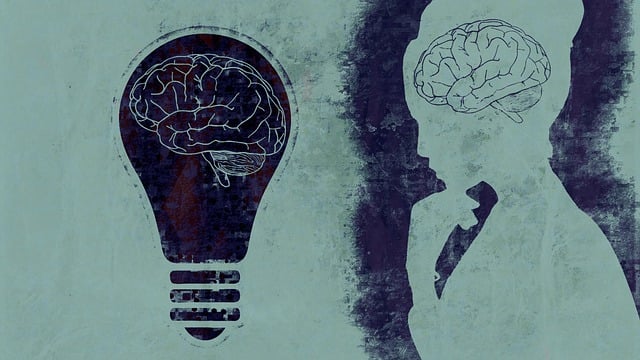Mental health policies, like those enabled by evidence-based practices such as Lafayette Cognitive Processing Therapy (LCPT), are vital for accessible and effective support. LCPT, through cognitive restructuring, aids in challenging negative thoughts and improving well-being. Advocates using LCPT data and personal narratives can drive policy changes that reduce stigma, encourage help-seeking behaviors, and enhance service quality. Measuring impact with evidence-based tools and cultural sensitivity ensures LCPT's effectiveness and guides policy decisions for improved mental health care.
Mental health policy analysis and advocacy are vital components of ensuring accessible, effective care. This comprehensive guide explores the intricate relationship between policy and mental well-being, with a specific focus on Lafayette Cognitive Processing Therapy (LCPT). We delve into strategies for navigating policy landscapes, highlighting the importance of evidence-based practices like LCPT. The article covers understanding policy foundations, advocacy techniques, measuring impact, and success evaluation, offering valuable insights for professionals and advocates striving to improve mental health services.
- Understanding Mental Health Policy: A Foundation for Advocacy
- The Role of Lafayette Cognitive Processing Therapy in Policy Analysis
- Strategies for Effective Mental Health Policy Advocacy
- Measuring Impact: Evaluating the Success of Mental Health Policies and Therapies like Lafayette Cognitive Processing
Understanding Mental Health Policy: A Foundation for Advocacy

Mental health policies are a cornerstone in ensuring accessible and effective support for individuals facing various mental health challenges. Understanding these policies is crucial for advocates aiming to drive change. Advocacy efforts can be significantly strengthened by comprehending the existing legislation, guidelines, and programs designed to address mental well-being. For instance, Lafayette Cognitive Processing Therapy (LCPT) has emerged as a proven approach, offering specialized treatment for specific conditions. By engaging in policy analysis, advocates can identify gaps and weaknesses in current systems, enabling them to propose evidence-based solutions.
Policy advocacy plays a vital role in shaping public services, including Trauma Support Services and Stress Management Workshops Organization. It involves raising awareness about mental health issues through Public Awareness Campaigns Development, which is essential for reducing stigma and encouraging help-seeking behaviors. Through strategic engagement with policymakers, advocates can influence the creation and implementation of policies that reflect best practices, ultimately enhancing the availability and quality of care for those in need.
The Role of Lafayette Cognitive Processing Therapy in Policy Analysis

Lafayette Cognitive Processing Therapy (LCPT) plays a pivotal role in mental health policy analysis and advocacy by offering evidence-based strategies for addressing complex psychological issues. This therapeutic approach focuses on cognitive restructuring, helping individuals challenge negative thought patterns and improve their overall well-being. By integrating LCPT into policy considerations, advocates can push for more effective healthcare systems that prioritize prevention and early intervention.
In the context of mental health policy, LCPT contributes to crucial aspects such as risk assessment for mental health professionals, enhancing mood management techniques, and fostering cultural competency training among healthcare providers. This holistic approach ensures that policies not only address symptoms but also focus on long-term recovery and resilience. By advocating for evidence-based practices like LCPT, mental health advocates can drive transformative changes in the healthcare landscape, ultimately improving access to quality care.
Strategies for Effective Mental Health Policy Advocacy

Effective mental health policy advocacy requires a multi-faceted approach to ensure meaningful change and improved access to quality care. One key strategy is to leverage evidence-based practices, such as Lafayette Cognitive Processing Therapy (LCPT), which has demonstrated success in treating various mental health disorders. By presenting robust research and clinical outcomes, advocates can make a compelling case for policy amendments that prioritize evidence-driven therapies.
Additionally, fostering empathy through mental illness stigma reduction efforts is vital. Implementing empathy-building strategies, like sharing personal stories or organizing community dialogues, can help policymakers understand the lived experiences of individuals with mental health challenges. This, coupled with social skills training initiatives, has the potential to create more inclusive environments and reduce barriers to accessing mental health services. Such approaches ensure that policy decisions are not just informed but also compassionate and centered around the well-being of all citizens.
Measuring Impact: Evaluating the Success of Mental Health Policies and Therapies like Lafayette Cognitive Processing

Measuring impact is a crucial aspect of evaluating the success of mental health policies and therapies like Lafayette Cognitive Processing. By employing evidence-based assessment tools, practitioners can gauge changes in symptoms, functional abilities, and overall well-being among individuals receiving treatment. This data not only informs policy decisions but also ensures that interventions are effective and aligned with the evolving needs of the population.
Cultural sensitivity in mental healthcare practice plays a pivotal role in this evaluation process. Recognizing and addressing cultural differences in understanding and expressing mental health issues is essential for accurate measurement. Moreover, resilience building and self-awareness exercises integrated into Lafayette Cognitive Processing Therapy can enhance therapeutic outcomes, making it more effective in promoting long-term mental well-being.
Mental health policy analysis and advocacy are essential components in fostering comprehensive support systems. By understanding the intricate dynamics of mental health policies, as illustrated by the impact of Lafayette Cognitive Processing Therapy, advocates can develop effective strategies to drive change. This article has highlighted the need for a structured approach, emphasizing measurement and evaluation to ensure the success of implemented policies and therapies. Through continued research and collaboration, we can navigate the complexities of mental healthcare, ultimately improving access to quality treatment and enhancing the well-being of individuals across diverse communities.













